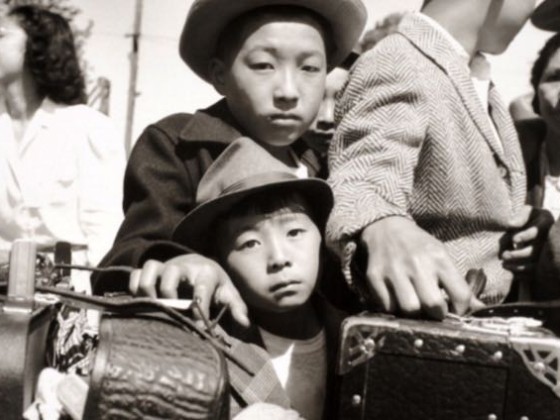CERTAIN DATES HAVE LEFT THEIR scars on American memory. The two that every American remembers on a yearly basis are December 7th, 1941, and September 11th, 2001, the dates of the Pearl Harbor attack and of the terrorist attacks in New York and Washington, respectively. It’s worthwhile for us to remember these dates, because they represent giant, nationwide traumas that precipitated massive changes for our country. But it’s worth noting that there are other dates, dates just as dark, that we do not collectively remember with moments of silence, ceremonies, or patriotic zeal. Today, February 19th, is one of those days.

Today, February 19th, Marks One of the Darkest Events in American History
February 19th, 1942 was the day that President Franklin D. Roosevelt, caving to anti-Japanese sentiment in the country after Pearl Harbor, signed Executive Order 9066, which authorized the incarceration of around 120,000 Japanese-Americans. Of these 120,000, 62% were American citizens. February 19th is now observed as the Day of Remembrance of the Japanese internment.
December 7th certainly deserves to be remembered for the attack on Pearl Harbor, and in fact it may well be easier for us to remember, as it commemorates an act of violence in our borders that came from outside our borders. But February 19th deserves to be remembered, too, and is perhaps even more important for us to remember: it shows that even though we were on the right side of that war, we were still capable of committing horrible human rights abuses. Even while fighting fascism and hyper-militarism overseas, we succumbed to some of the same ugly instincts here at home.
February 19th carries even more significance now, in 2016, than it has in many previous years as a result of current events. September 11th turns 15 later this year, and while we have not succumbed to the same level of ugliness with the same speed as we did in 1942, anti-Muslim sentiment remains alarmingly high. Using the same rhetoric of guilt by association, Presidential candidates like Donald Trump call for Muslims to be banned from our country, while the Democratic mayor of Roanoke, Virginia, actually invoked the World War II Japanese internment as a justification for refusing to allow in Syrian refugees.
This type of rhetoric isn’t harmless: attacks against US Muslims and mosques have increased significantly in the past few months.
All of which makes this, the Day of Remembrance, a day of huge importance: America can choose to only remember the days when it was victimized, or the days when it won its greatest victories, but if America is to be a country with a conscience, a country that tries to better itself, a country that both atones for and learns from its mistakes, it has to remember the days when we were at our worst as well.